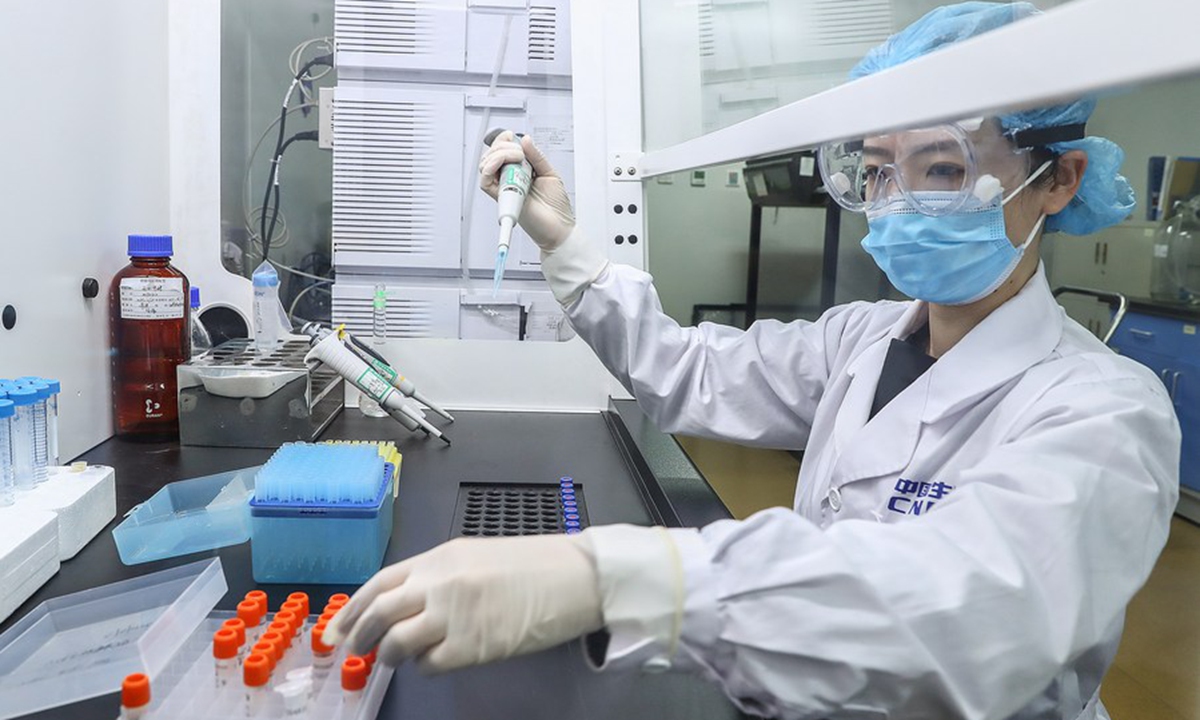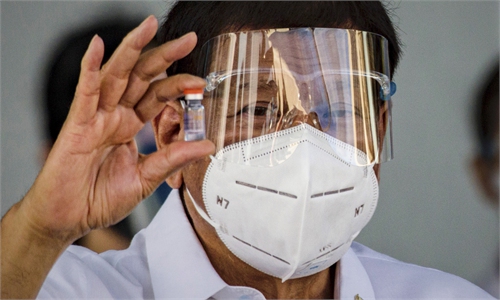
A staff member tests samples of the COVID-19 inactivated vaccine at a vaccine production plant of China National Pharmaceutical Group (Sinopharm) in Beijing, capital of China, April 11, 2020. (Xinhua/Zhang Yuwei)
China's vaccine producer Sinopharm has completed clinical trials for groups aged 3-17 and will submit its data for approval soon, which industry observers said is likely to expand China's mass vaccination for minors.
Yang Xiaoming, CEO of the China National Biotec Group (CNBG) of Sinopharm, made the remarks in an interview with Chinese media on Tuesday night.
He said that clinical trials on subjects aged 3-17 have finished and Sinopharm will submit the data to China's National Medical Products Administration for approval soon. The administration will later approve the use of vaccines on minors in accordance with regulations.
Industry observers said the approval of Sinopharm vaccines for minors is likely to bring more young people into China's mass vaccination plan, but some remained cautious over vaccinations for minors.
It is a sign that China will likely vaccinate minors aged 3-17, but there is not adequate data to adopt this group of people into the national vaccination scheme, as scientists around the world have not determined the real efficacy of vaccines and it takes five to 10 years to find out, a Beijing-based immunologist who requested anonymity told the Global Times.
However, Jiang Chunlai, a professor at Jilin University's School of Life Sciences, also believed the trial data may bring about mass vaccinations on young people.
Feng Duojia, president of the China Vaccine Industry Association, previously told the Global Times that the mass use of vaccines on subjects aged 3-17 could be realized in March at the earliest.
As children are still developing and their immune functions are not yet mature, the clinical trials on minors are based on the fact that tests on other age groups have been approved as safe, Feng said.
Yang said that Sinopharm listed minors as the third group to conduct clinical trials on out of safety considerations. People aged above 60 years old were the second group to be tested after people aged 18-59.
Yang did not disclose details of the clinical trials on subjects aged 3-17.
The Beijing Center for Diseases Prevention and Control on Tuesday said vaccinations for people aged under 18 will be carried out based on vaccine development and clinical trial results, the authority said on its website.
The above-quoted immunologist further suggested that COVID-19 vaccinations on children be carried out in a cautious manner given the fact that emergency use of vaccines has not been perfected.
The Chinese mainland kicked off mass vaccinations for high-risk groups in December 2020, with two domestic vaccines separately developed by Sinopharm and Sinovac. Only people aged between 18 and 59 can get vaccinated, according to instructions from the national disease control and prevention authority.
The annual production capacity of Sinopharm in 2021 is likely to reach 1 billion doses, Yang said.
Sinopharm's inactivated vaccines have so far proven effective against mutated viruses, including mutated strains detected in the UK, South Africa and a dozen strains isolated in China, according to Yang.
As for the efficacy of Sinopharm's vaccines, Yang said evidence showed that the antibodies generated did not decline within six months. Due to the large amounts of data and serum samples, it is still being monitored to see if the clinical persistence of the vaccine can last for more than half a year, the head of Sinopharm told Chinese media.


